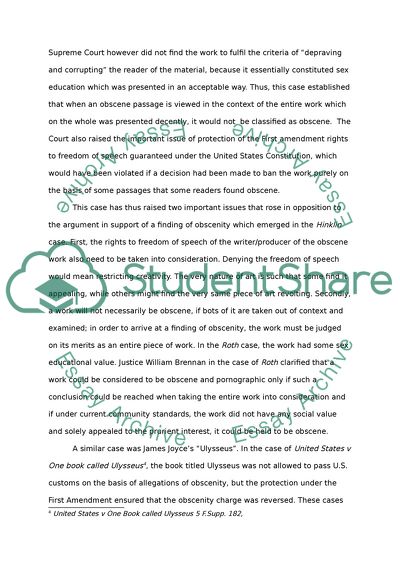Cite this document
(“One mans obscenity is another mans bedtime reading. (Geoffrey Essay”, n.d.)
Retrieved from https://studentshare.org/miscellaneous/1573021-one-mans-obscenity-is-another-mans-bedtime-reading-geoffrey-robertsonconsider-whether-the-uk-law-of-obscenity-should-be-abolished-or-reformed-in-relation-to-literature-or-film
Retrieved from https://studentshare.org/miscellaneous/1573021-one-mans-obscenity-is-another-mans-bedtime-reading-geoffrey-robertsonconsider-whether-the-uk-law-of-obscenity-should-be-abolished-or-reformed-in-relation-to-literature-or-film
(One Mans Obscenity Is Another Mans Bedtime Reading. (Geoffrey Essay)
https://studentshare.org/miscellaneous/1573021-one-mans-obscenity-is-another-mans-bedtime-reading-geoffrey-robertsonconsider-whether-the-uk-law-of-obscenity-should-be-abolished-or-reformed-in-relation-to-literature-or-film.
https://studentshare.org/miscellaneous/1573021-one-mans-obscenity-is-another-mans-bedtime-reading-geoffrey-robertsonconsider-whether-the-uk-law-of-obscenity-should-be-abolished-or-reformed-in-relation-to-literature-or-film.
“One Mans Obscenity Is Another Mans Bedtime Reading. (Geoffrey Essay”, n.d. https://studentshare.org/miscellaneous/1573021-one-mans-obscenity-is-another-mans-bedtime-reading-geoffrey-robertsonconsider-whether-the-uk-law-of-obscenity-should-be-abolished-or-reformed-in-relation-to-literature-or-film.


